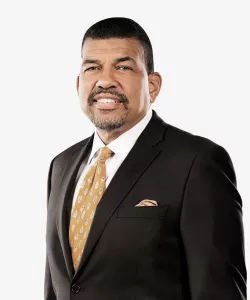Governor Cuomo Signs “New York State on PAUSE” Executive Order Regarding Guidance on Essential Services
On March 20, 2020, Governor Cuomo signed the “New York State on PAUSE” Executive Order (“PAUSE Order”) to ensure safety for residents across New York State. Effective 8PM Sunday, March 22, 2020, all statewide non-essential businesses must close all in-person operations.
Moreover, essential businesses are required to implement social distancing rules of at least six feet and continue to abide by Department of Health directives on sanitary and safe work environments.
PAUSE (Policies Assure Uniform Safety for Everyone) guidance is available to assist businesses in determining if they are essential and how to request a designation as an essential business. Single occupancy businesses (i.e. gas station) are deemed exempt and need not apply for essential business designation. Businesses that were ordered closed due to restrictions of 500 person or more gatherings on March 15, 2020 are ineligible as an essential business under the PAUSE guidance.[1]
What about businesses providing essential and non-essential services?
Exemptions are in place for businesses that operate in essential and non-essential capacities. The exemption is solely applicable to “business operations that are necessary to support the essential services, supplies, or support.”[2]
Which Industries are Essential Businesses?
The list of “essential” businesses as identified in the Executive Order are:[3]
1. Essential health care operations
- Research and laboratory services
- Hospitals
- Walk-in-care health facilities
- Veterinary & animal health services
- Elder care
- Medical wholesale and distribution
- Home health care workers or aides
- Doctor and dentist offices
- Nursing homes, or residential health care facilities or congregate care facilities
- Medical supplies & equipment providers
2. Essential infrastructure including
- Utilities
- Public water and wastewater
- Telecommunications and data centers
- Airports/airlines
- Transportation infrastructure such as bus, rail, or for-hire vehicles, garages
3. Manufacturing
- Food processing (all food & beverage)
- Chemicals
- Medical equipment/instruments
- Pharmaceuticals
- Safety & sanitary products
- Telecommunications
- Microelectronics/semi-conductor
- Agriculture/farms
- Paper products
4. Retail
- Grocery stores (all food & beverage stores)
- Pharmacies
- Convenience stores
- Farmer’s markets
- Gas stations
- Restaurants/bars (only take-out/delivery)
- Hardware and building material stores
5. Essential services including
- Trash and recycling collection, processing and disposal
- Mail and shipping services
- Laundromats/dry cleaning
- Building cleaning and maintenance
- Child care services
- Auto repair
- Warehouse/distribution and fulfillment
- Funeral homes, crematoriums and cemeteries
- Storage for essential businesses
- Animal shelters/animal care/management
6. News media
7. Financial Institutions including
- Banks
- Insurance
- Payroll
- Accounting
8. Basic necessity providers to economically disadvantaged populations including
- Homeless shelters
- Congregate care facilities
- Food banks
- Human services providers
- Direct patient care in state-licensed or funded voluntary programs
- Community and in state-licensed residential facilities
- Community shelters
- Other critical human services agencies providing direct care or support
9. Construction
- Skilled trades such as electricians, plumbers
- Other related construction firms and professionals for essential infrastructure or for emergency repair and safety purposes
10. Defense
- Defense & natural security-related operations supporting the U.S. Government or a contractor thereto
11. Essential services necessary to maintain the safety, sanitation and essential operations of residences or other essential businesses including
- Law enforcement
- Fire prevention and response
- Building code enforcement
- Security
- Emergency management and response
- Building cleaners or janitors
- General maintenance (whether vendor or direct entity employed)
- Automotive repair
- Disinfection
- Doormen
12. Vendors providing essential services or products needed to ensure operation of government agencies and provide for the public health, safety, and welfare
- Logistics
- Technology support
- Child care programs and services
- Government-owned or leased buildings
- Essential government services
Subsequent to issuing the PAUSE Order, Gov. Cuomo deemed bicycle repair shops as essential businesses[4].
How can businesses request essential business designation?
If you believe your business is essential, you can request a designation at Empire State Development (ESD)’s webpage here. ESD will review and grant the request if it determines “that it is in the best interest of the state to have the workforce continue at full capacity in order to properly respond” to this health crisis. Businesses and not-for-profit entities should only request a designation if it is not covered by the PAUSE guidance but believes the business should be.
This is part of a series of Alerts that address residents of New York State who are implicated by the COVID-19 pandemic.
[1] Such businesses include bars, restaurants, gyms, movie theaters, casinos, auditoriums, concerts, conferences, worship services, sporting events, and fitness centers.
[2] Governor Cuomo Issues Guidance on Essential Services Under The ‘New York Stare on PAUSE’ Executive Order, dated March 20,2020.
[3] For an extensive list of essential businesses, click here.
[4] StreetsBlog NYC, Cuomo Says Bike Shops CAN Stay Open as ‘Essential’ Businesses, de Blasio Confirms.
Contacts
- Related Practices

